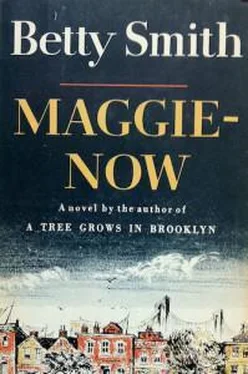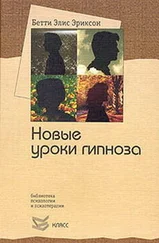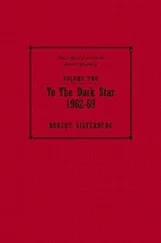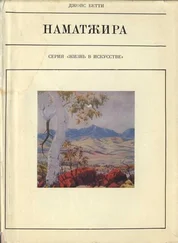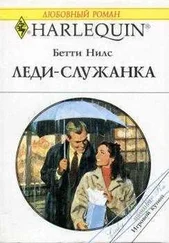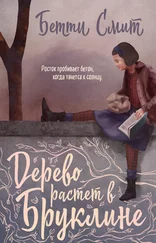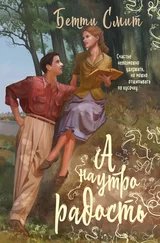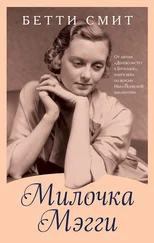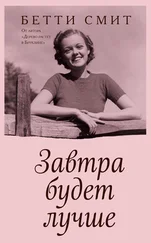Бетти Смит - Maggie-Now
Здесь есть возможность читать онлайн «Бетти Смит - Maggie-Now» весь текст электронной книги совершенно бесплатно (целиком полную версию без сокращений). В некоторых случаях можно слушать аудио, скачать через торрент в формате fb2 и присутствует краткое содержание. Жанр: Проза, на английском языке. Описание произведения, (предисловие) а так же отзывы посетителей доступны на портале библиотеки ЛибКат.
- Название:Maggie-Now
- Автор:
- Жанр:
- Год:неизвестен
- ISBN:нет данных
- Рейтинг книги:3 / 5. Голосов: 1
-
Избранное:Добавить в избранное
- Отзывы:
-
Ваша оценка:
- 60
- 1
- 2
- 3
- 4
- 5
Maggie-Now: краткое содержание, описание и аннотация
Предлагаем к чтению аннотацию, описание, краткое содержание или предисловие (зависит от того, что написал сам автор книги «Maggie-Now»). Если вы не нашли необходимую информацию о книге — напишите в комментариях, мы постараемся отыскать её.
Maggie-Now — читать онлайн бесплатно полную книгу (весь текст) целиком
Ниже представлен текст книги, разбитый по страницам. Система сохранения места последней прочитанной страницы, позволяет с удобством читать онлайн бесплатно книгу «Maggie-Now», без необходимости каждый раз заново искать на чём Вы остановились. Поставьте закладку, и сможете в любой момент перейти на страницу, на которой закончили чтение.
Интервал:
Закладка:
~ ~57] "Why don't you get a Castle clip, Maggie?" they urged her.
In her mind, she heard Claude say: The classic simplicity of your hair style. .
"You'd look like Irene Castle, wouldn't she, girls, with those high cheekbones and all>" Said Gina Pheid, Sonny's sister, who took almost a relative's interest in Maggie-Now: "You could be a model with your face."
"It's only a face," said Maggie-Now.
Little Chime. She remembered his voice. Remembering still made her feel a little sad but it didn't hurt much any more.
She mentioned getting her hair cut to Lottie.
"Don't," said Lottie, horrified. "Don't cut your hair off."
"Why not, Aunt Lottie? All the girls are doing it. It would be easier to manage."
"Listen, if a woman ain't got hair, what has she got?"
asked Lottie.
Maggie-Now decided against bobbing it.
Pat settled into the routine of taking his Sunday dinners at Mrs. O'Crawley's boardinghouse. She had three regular men who roomed and boarded there and a few transients like Pat. She had been married and widowed twice. Her first husband left a thousand dollars in insurance. She never did get around to telling her second husband about that. Her second husband died and left her two thousand dollars in insurance and the narrow house.
She converted the basement dining room into a millinery shop. (She made all the hats she sold.) She took in three somewhat elderly men as boarders. They lived upstairs. She had no children, no relatives. When she started the venture, her friends advised her to take in women boarders; they said "people would talk" if she took in men. She said, "Let them." She took in the men. She didn't want women boarders because she said they washed their pants in the sink and asked for hot tea in the middle of the night when they had cramps.
She cast an eye on Pat. He was fairly young' worked for the city. His widow would get a pension when he died.
That was almost as good as insurance.
Pat cast an eye on her real estate. He asked her if the house was hers, free and clear, and she asked him, coyly, wouldn't [USE]
he like to know! She didn't tell him, though.
Pat took an interest in her house. He asked Mick Mack how much he paid for room and board and he multiplied that by three and thought, thirty dollars a week wasn't a bad income plus what she got from making and selling hats. Although a lazy man, he went to the trouble of doing some odd-job repairs around her house, saying: "We don't want the place to run down, do we?"
She said: "No, I don't."
He brought Denny around once, for Sunday dinner. He knew Maggie-Now loved children dearly, and his wife had loved children. He thought Mrs. O'Crawley felt the same way.
"Denny," he said, "how'd you like Mrs. O'Crawley for a mother? "
Denny sized her up and decided he wouldn't like her for a mother. He said: "I don't care."
Pat said: "Mrs. O'Crawley, how'd you like a son like Denny?"
Mrs. O'Crawley had nothing against children. She just didn't like them. "He seems like a nice boy," she said. "If you like children."
Pat thought it best to postpone his courting until he could think of a better angle. He nurtured his bitter friendship with Mick Mack. They spent the long summer and early autumn afternoons and evenings in footless arguments.
"If I didn't have two kids to support," said Pat, "I'd go and enlist."
"And sure, you're the one would wipe out the Germans in no time a-tall," said his admirer.
"The Germans?" asked Pat, astonished. "Why, I'd enlist in the German army."
"What for? You ain't German."
"I'd enlist in the German army just the same to lick hell out of the English."
"What do you want to lick them for?"
"Because of what they done to Parnell."
"What did they do to Parnell?" asked Mick Mack in all innocence.
"You don't know?" asked Pat, shocked.
"I was a boy in Dublin at the time."
"You ignorant mick!" Mick Mack looked hurt but he said noth [259]
ing."And you call yourself a man," sneered Pat, aching for a fight.
"And I am so," said Slick Mack with unexpected dignity.
"Not if you take all this gulf offs me," said Pat.
"I take it," said the little fellow quietly, "because you're my friend all the same."
"And sure, you're the one is hard up for a friend, then,"
said Pat. "Taking all the gulf from me."
"'Tis better," said Mick Mack, "to have a mean friend than no friend a-tall."
Summer went into fall. Denny went back to school. Pat went to his superintendent and asked how soon could he retire on pension. He'd put in more than twenty-five years cleaning streets and Pat thought that was more than enough.
"Men are dying in the trenches," said the super, "so that men like you can live."
"Live to shovel up horse manure," mumbled Pat.
"And you want to quit! Come around again sucking for retirement and I'll put you on the ashcan detail and you can retire after five years with a hernia. Now get out of here!"
Maggie-Now had a long letter from Sonny. There was talk, he wrote, of the fellows getting out of the trenches by Christmas. He asked her to marry him. He wrote he'd like to settle down and raise a family. He'd written to his folks and his father wrote he'd give him half the profits of the business. And his mother and sister and brothers were crazy about her, Maggie-Now, he wrote.
She made up her mind. I want children, lots of them, and a home for them. Sonny would be a good father, a good provider, a good husband, like Uncle Timmy was. Of course, he wouldn't sit around and talk. He'll have his bowling nights and his lodge meeting and one night a week to play cards with the boys and maybe fishing at Canarsie like other men do. I'd be lonesome the first year, then I'd have the children and my life would be full. I like him. I respect him.
I'm proud that everyone thinks so well of him. And that must a,ld up to love if not now, someday. At least he wants me. It's nice to be wanted. And I want a husband.
[260] I want children. I don't want to wait….
She made up her mind to marry him and she felt at peace after her decision.
Then she heard from C laude Bassett!
~ CHAPTER THIRTY-SIX ~
HER father, as always, intercepted the postman on the stoop. Pat was leaving for work. She saw the postman hand him a card. She saw her father's face tighten as he read the message and she knew! She came out on the stoop and held out her hand. Pat made no move to give her the card. She took it from him. The message was simple: Dear M: Wait for me. I'm coming back. Love, C. B.
Her face went radiant. She pressed the card to her breast and smiled up at her father. "Oh, Papa!" she said happily.
"Where'd it come from?" he asked in a thick voice.
"You smudged the postmark with your thumb," she cried Otlt. "Now I'll never know. Oh, Papa!"
"What about that plumber?" he asked.
"What plumber?"
"If you got to throw yourself away, throw yourself away on the plumber, not that damn Claude Bastid."
"Bassett," she corrected him. Then she gasped. "How do you know about Sonny Pheid?"
"I got ways of finding out things what people think they're hiding from me."
"Papa! You read my letters in my top drawer!"
"If you don't want people to read them, don't leave them, then, where people can find them.'' He left for work.
Читать дальшеИнтервал:
Закладка:
Похожие книги на «Maggie-Now»
Представляем Вашему вниманию похожие книги на «Maggie-Now» списком для выбора. Мы отобрали схожую по названию и смыслу литературу в надежде предоставить читателям больше вариантов отыскать новые, интересные, ещё непрочитанные произведения.
Обсуждение, отзывы о книге «Maggie-Now» и просто собственные мнения читателей. Оставьте ваши комментарии, напишите, что Вы думаете о произведении, его смысле или главных героях. Укажите что конкретно понравилось, а что нет, и почему Вы так считаете.
